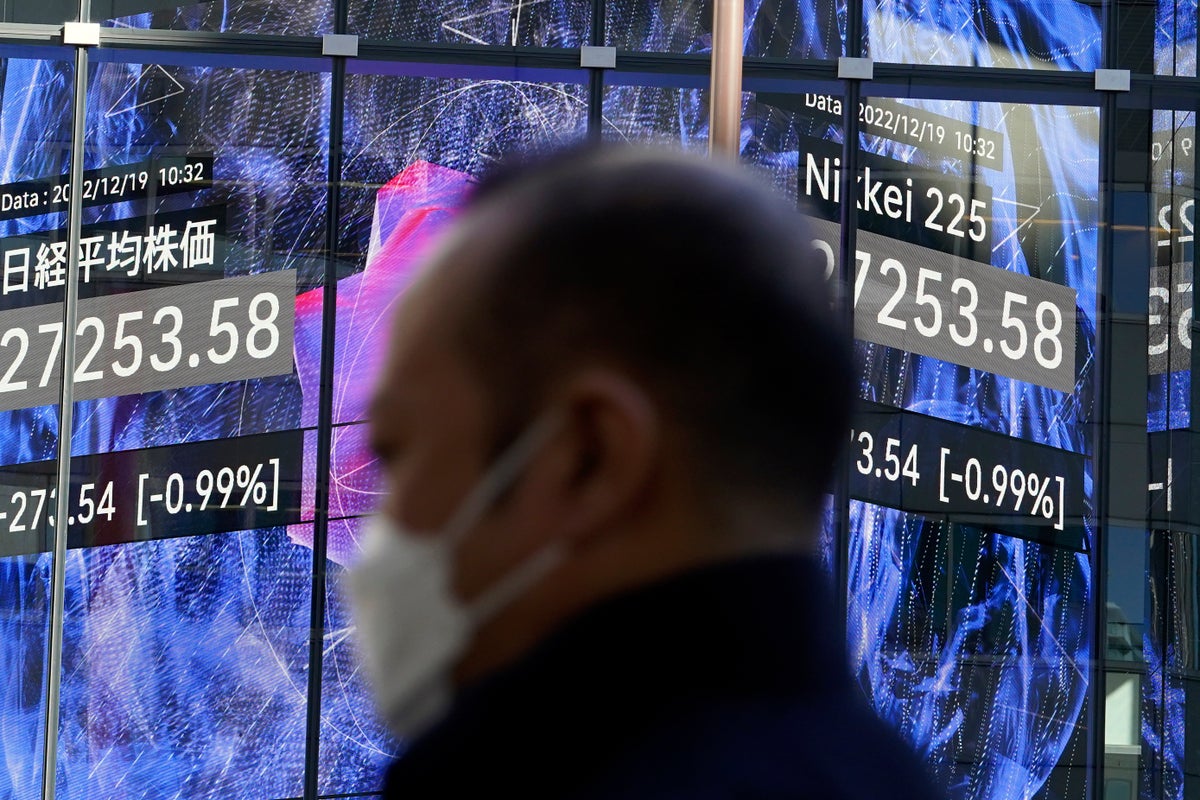
Asian stock markets fell again Monday as investors wrestled with fears the Federal Reserve and European central banks might be willing to cause a recession to crush inflation.
Shanghai, Tokyo, Hong Kong and Sydney declined. Oil prices rose.
Wall Street fell Friday after the Fed raised its forecast of how long interest rates have to stay elevated to cool inflation that is near a four-decade high. The European Central Bank warned more rate hikes are coming.
That “hawkish rhetoric” indicates “mounting pipeline risks of a global recession,” said Tan Boon Heng of Mizuho Bank in a report.
The Shanghai Composite Index lost 1.4% to 3,122.63 despite the ruling Communist Party announcing Friday it will try to reverse China's economic slump by stimulating domestic consumption and the real estate market.
The Nikkei 225 in Tokyo sank 1.1% to 27,223.72 and the Hang Seng in Hong Kong shed 0.6% to 19,326.18.
The Kospi in Seoul retreated 0.6% to 2,344.57 and Sydney’s S&P-ASX 200 was 0.2% lower at 7,134.00.
India's Sensex opened down 0.8% at 61,337.81. Singapore and Bangkok advanced while New Zealand and other Southeast Asian markets declined.
On Friday, Wall Street’s benchmark S&P 500 index lost 1.1% to 3,852.36 as it turned in its second weekly decline. It is down about 19% this year.
The Dow Jones Industrial Average dropped 0.8% to 32,920.46. The Nasdaq composite lost 1% to 10,705.41.
More than 80% of stocks in the benchmark S&P 500 fell. Technology and health care stocks were among the biggest weights on the market. Microsoft fell 1.7% and Pfizer slid 4.1%.
U.S. inflation has eased to 7.1% over a year earlier in November from June’s 9.1% high but still is painfully high.
The Fed on Wednesday raised its benchmark short-term lending rate by one-half percentage point for its seventh hike this year. That dashed hopes the U.S. central bank might ease off increases due to signs inflation and economic activity are cooling.
The federal funds rate stands at a 15-year high of 4.25% to 4.5%. The Fed forecast that will reach a range of 5% to 5.25% by the end of 2023. Its forecast doesn’t call for a rate cut before 2024.
In energy markets, U.S. benchmark crude rose 64 cents to $74.93 per barrel in electronic trading on the New York Mercantile Exchange. The contract fell $1.82 on Friday to $74.29. Brent crude, the price basis for international oil trading, gained 68 cents to $79.72 per barrel in London. It lost $2.17 the previous session to $79.04.
The dollar declined to 136.20 yen from Friday’s 136.56 yen. The euro gained to $1.0603 from $1.0600.







